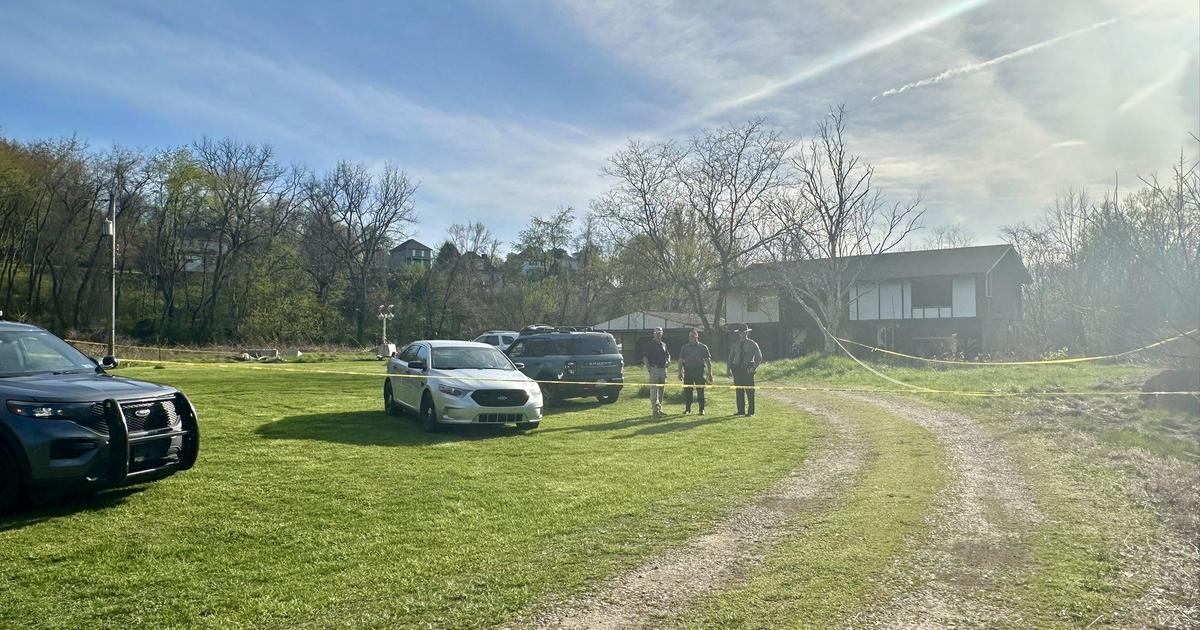Doctors Seeing More Adults Developing Allergies
PITTSBURGH (KDKA) -- We've all heard about kids developing allergies - but adults?
Doctors are seeing it more and more: adults who were never allergic to anything suddenly developing them.
As KDKA Health Editor Dr. Maria Simbra found out, these allergies could be life-threatening.
"It's still heavily based in children, but more and more recently I've been seeing more adults with complaints about possible food allergy," Dr. David Skoner, of Allegheny General Hospital Allergy & Immunology, said.
Eighteen percent of kids, compared to three percent of adults. It happened in real life to 20-year-old Johanna Trupp.
"When I was eating apples, I felt nauseous," said Trupp. "I couldn't stop salivating; I had this pain up by my ear and I was itching around my mouth."
It killed 20-year-old Faith Floridia when she went into anaphylactic shock, which is a life-threatening emergency with swelling and a severe drop in blood pressure.
"They had her on life support and the question was what could this be? And they said it was the shrimp and crab meat she was eating," said Donna Floridia, Faith's mother. "I said, 'We constantly ate shrimp, how could this be?' And they said, she had sudden onset of allergies."
Local attorney Sandy Harvey had it happen at work. A simple steak salad set it off.
"My teeth were tingling, and my lips started to tingle and my hands were red," Harvey said.
A minute later, he passed out. His blood pressure fell. He was rushed to the hospital.
"The blood pressure can fall, people can faint, pass out," Dr. Skoner says. "The breathing can become more difficult with stridor."
At first, Harvey didn't know what the offending food was. Skin tests didn't show it. So to find out, he got more intense testing.
"Ten tubes of blood for all the things he wanted to test," said Harvey.
"Sometimes the only way to do it is with a blood test; and if that doesn't do it, then with an oral food challenge," Dr. Skoner said.
After a nerve-wracking 10-day wait, afraid to eat anything, Harvey finally got the results. It was a soy allergy; an ingredient in the steak salad, but he had mild milk and egg white allergies, too.
"I had been eating these things all my life," he said. "I asked the doctor, 'Why didn't it bother me before?' And quite frankly, he said the concentration and the timing of it; you had enough such that it overwhelmed the immune system."
For Harvey, it was a life-changing event.
"I have to really think about what I'm going to eat," he said. "I look to see what the ingredients are."
He always carries an EpiPen, an emergency epinephrine injection at the first sign of a reaction - tingling, swelling or a spreading redness.
"The current guidelines they're recommending, not late, but very, very early treatment with epinephrine stabbed into the upper thigh," says Dr. Skoner.
Ironically, he already carried an EpiPen for a bee sting allergy he thought he had since childhood - something that did not show up on testing now.
"I'm guessing he lost that allergy," Dr. Skoner said. "Now that illustrates things can change."
While many kids outgrow their food allergies, what happens when the problem comes on in adulthood isn't well-studied.
Even with childhood cases, no one really looks to see if the allergies have indeed gone away, so people may still take precautions for decades when it's not really necessary.
RELATED LINKS:
More Health News
More Featured Stories



